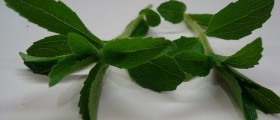
Aspartame is an artificial sweetener, containing no saccharide. In fact, this sweetener is one of the most commonly used sweeteners in foods and drinks, being labeled as E951, according to the European Union.
Initially, this artificial sweetener was sold under the name of NutraSweet. However, in recent times, since 2009, this sweetener is called AminoSweet. The initial patent of for this product dates back to 1965. Yet, this first patent expired in 1992.
The main problem with this artificial sweetener is the fact that it is known to trigger various health problems, whenever it is consumed in quantities above the recommended dosage. Nevertheless, people with the genetic disorder called phenylketonuria need to avoid this product completely, since its breakdown in the organism produces phenylalanine, among other substances.
Artificial Sweeteners
Artificial sweeteners, in general, are substances which are created synthetically, being multiple times sweeter than the actual sugar. Due to this reason, smaller dosages of artificial sweeteners are necessary for achieving the same amount of sweetness in a product. Thus, these are commonly used in the food and beverage industry.
However, due to the unnatural characteristics of these products, they have commonly been related to health problems. Some of the claims against artificial sweeteners made sense while some others were completely without proof. Nevertheless, health problems and a general sense of health hazard remain present whenever these products are mentioned.
Aspartame, from a chemical point of view, is a product which is basically a methly ester of the dipeptide of the natural amino acids L-aspartic and L-phenylalanine. If the conditions are alkaline, aspartame may generate methanol through the process of hydrolysis and if the peptide bonds get hydrolyzed, free amino acids may be formed.
In the UK and in many other countries, aspartame meets the requirements of the Food Standards Agency, as long as all the products containing it have a label “contains a source of phenylalanine”. Some countries, like Canada, even insist that products with aspartame state this through labels located close to the brand name.
What are the Dangers of Aspartame?
Aspartame is usually mentioned with a dose of controversy, especially in books, articles and on websites, with the authors of those lines adding reasons why people should not consume this product.
As far as the industrial conspiracy theories related to aspartame are concerned, Dr. Robert Walton conducted a research on many individuals, through a form of a survey, the results of which were published in his medical literature. Namely, 166 studies were carried out on the subject of health safety, and 76 out of all these were related to NutraSweet, the industry which creates aspartame. While the company itself managed to defend the product in 100% of cases, 92% of the independently funded researches found certain health dangers related to aspartame.
Furthermore, a research was carried out, trying to get information on the health of the workers involved in aspartame production and the consumers of products containing this artificial sweetener. The results have shown that, by 1998, products containing aspartame were the main cause of about 80% of all health complaints filed to the Food and Drugs Administration. The effects of exposure to aspartame ranged from nausea, mood swings, dizziness and fatigue, all the way to diarrhea, vision problems, cramps, seizures and memory loss. Moreover, through further research, it was found that this product leads to depression, anxiety attacks, speech problems, MS, lupus and many forms of cancer.
Naturally, FDA rebuked all these claims, regardless of the evidence provided by the research.
Still, people who get exposed to aspartame remain more prone to headaches which can range from moderate to severe, depression and many other health problems.
Yet, the most dangerous aspect of aspartame is its possible relation to cancer. In a study carried out on rats, 12 out of 320 rats exposed to aspartame developed malignant tumors in some parts of their bodies. Additionally, some other studies have managed to connect aspartame to many forms of cancerous diseases, such as oral cancer, cancer of the pharynx, esophagus, colon, rectum, larynx, prostate, ovaries and renal cell carcinoma.
However, further research is necessary to truly prove the dangerous potentials of this widely-used substance. Time is of the essence in this case, since we can only imagine the vast number of people consuming aspartame-containing products every day, potentially getting exposed to its harmful effects.
Aspartame gained its popularity due to the fact that it contains smaller amount of calories than natural sugar, due to the small dosages of this product required for sweetening food and drinks sufficiently. Yet, if we take into consideration all the health hazards which have been connected to aspartame during the previous years, we need to bear in mind that aspartame might not be as healthy as we might initially presume.
Thus, be careful about aspartame and avoid it as often as you can. Do your own research and find proof about the dangerous nature of this artificial sweetener, being completely aware of the problems you are trying to avoid.

















Your thoughts on this
Loading...